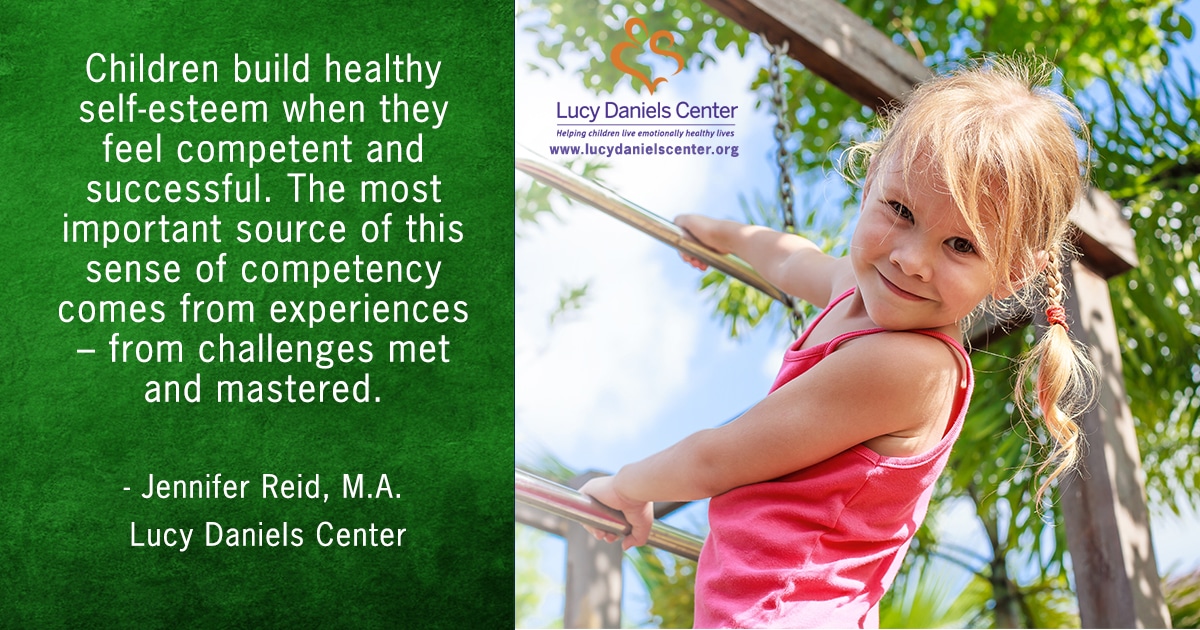Mental Health Mondays
Making the Most of Camp Experiences
The right summer camp has the potential to support a child’s social and emotional development and provide opportunities for growth. Selecting the right camp from the sea of possibilities can be an overwhelming task: How big? Overnight or day camp? Full day or half day? One week or eight weeks? With familiar people or in a new group? This week, we will focus on some ways to go about making such a decision on behalf of your child and his or her current developmental needs.
Pick a Camp Where Success is Almost Guaranteed
The right camp should feel safe and comfortable enough for a child to manage the challenges and navigate the social aspects independently. In addition, the ideal camp environment encourages a child to reach just beyond their comfort zone and try new experiences. At the Lucy Daniels Center, we often recommend that parents use what we call the “90 percent rule” when making decisions about camps, school placement, travel, playdates, parties, and other activities. The rule is simple: present a challenge to your child only if you are 90 percent sure (i.e., pretty certain) that the experience will be successful.
Why 90 percent?
Children build healthy self-esteem when they feel competent and successful. The most important source of this sense of competency comes from experiences – from challenges met and mastered. While you can’t really quantify certainty or uncertainty, we use the level of 90 percent as a way of representing near certainty with only a small chance of failure. Parental instinct and judgment play a big role here: if you are feeling unsure and perhaps even anxious about the experience, listening to those instincts is often the best way to go.
Different Rules for Different Children
Some children are particularly resilient in the face of challenges and failures. They may become more determined to try again and succeed or are able to cope with the upset or disappointment in a way that does not set them back. Parents of emotionally resilient children can, therefore, take more risks when signing their children up for new experiences. Their 90 percent rule may be more around the 80 percent mark because failures are not usually setbacks for their children.
Other children respond to the same challenges and failures with embarrassment or anxiety. These children may try to protect themselves from failing again by pulling back and hesitating or even refusing to take new risks. Parents of children who respond in this way have to be more mindful of the emotional risks involved in signing them up for new experiences. Therefore, their 90 percent rule might be more a 95 or even 99 percent rule, keeping that chance of failure as small as possible.
Specialized Camps for Children Who Struggle with New Experiences
If you are not (mostly) certain that a summer camp would be a successful experience for your child, perhaps a more specialized group could help with the particular challenges and concerns you have for your child. Social skills camps, for instance, operate with a sensitivity to children’s emotional and social needs, paying special attention to the challenges of joining a group, meeting new people, playing and sharing with peers, and trying new experiences outside of the comfort of the home environment. Our experience in our classrooms has taught us that some children have the capacity to thrive in an environment that is particularly sensitive to social and emotional difficulties.
Making the Choice
Finding the right summer camp can be as simple as finding one that is centered on one of more of your child’s interests. However, depending on your child’s social and emotional development, the configuration of even the most interesting camp may or may not suit his or her current developmental needs. Think about how your child does in a number of settings (e.g., home, school, and play groups) and use that information to make your best prediction of how successful he would feel in a new and unfamiliar group. Choosing a camp that meets all of your child’s developmental needs – socially, emotionally, physically, and intellectually – can provide for a rewarding and enriching summer experience.
Lucy Daniels School is an emotionally safe and supportive learning environment for children preschool-5th grade. Lucy Daniels School provides an alternative choice in our therapeutic school for children who struggle emotionally and academically in a mainstream school environment. At the Lucy Daniels School, each child’s education and therapeutic program is carefully tailored to his or her needs and strengths. Parents meet regularly with a parent guidance counselor. This collaborative approach helps children progress socially and academically to become successful and competent learners.



